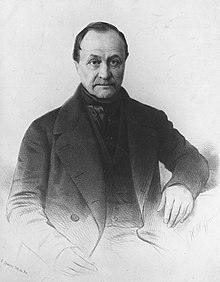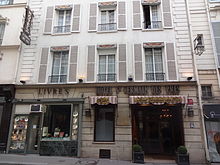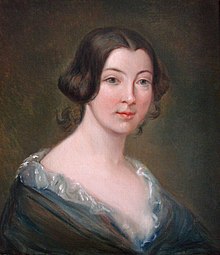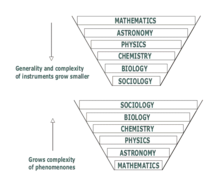Auguste Comte
Isidore Marie Auguste François Xavier Comte (born January 19, 1798 in Montpellier , † September 5, 1857 in Paris ) was a French mathematician , philosopher and critic of religion . Above all, however, he is known as the founder of positivism and co-founder of sociology - the name of which goes back to Comte.
Life

His father was the tax or customs officer , Receveur des Finances Louis-Auguste-Xavier Comte (1776-1859), his mother Félicité-Rosalie Comte, nee. Boyer (1764-1837). Comte had three younger siblings.
After attending school in Montpellier, Comte studied at the elite École polytechnique in Paris . The École polytechnique was devoted to French and republican ideals, above all to the idea of progress . In 1816 there was a student revolt , the École closed temporarily. The course participants could apply for new admission at a later date. So Comte had to leave the École and continued his studies at the medical school in Montpellier. When the École later reopened, Comte made no attempt to re-enroll.
Soon he saw irreconcilable differences with his Catholic - monarchist family and moved to Paris, where he made a living by doing odd jobs, etc. a. denied as a private tutor for mathematics . He was partly self-taught , and as such very well read, studied wide fields of historical and philosophical literature, took inspiration from authors as diverse as the physiocrat Turgot , from Condorcet , Montesquieu , from leading philosophical enlighteners such as David Hume and Immanuel Kant , but also from conservatives like Joseph de Maistre , and also dealt with clerical scholastic thinkers .
He became a student, friend and secretary of the eminent industrial and social theorist Count Claude-Henri Comte de Saint-Simon , who brought his pupil into intellectual society. Comte published his first journalistic work in Saint-Simons magazines. In 1824 he left Saint-Simon because of disagreements that could not be settled.
In 1822 Comte published Plan des travaux scientifiques nécessaires pour réorganiser la société as a fundamental work of the philosophy of positivism . He tried in vain for academic employment. He was denied a chair “because of the immoral falsehood of his mathematic materialism ”. He later lost even a modest position as a math tutor because of his contentious writings. His livelihood depended on patrons and financial help from friends. In his private apartment he gave lectures that were also attended by well-known scientists of his time.
Comte was known as an arrogant, energetic, and stirring personality. In 1826 he fell ill and was admitted to a psychiatric hospital , which he left without having been cured. In April 1827, he failed a suicide attempt . He married Caroline Massin , a former prostitute . Stabilized by his wife, he was able to work scientifically again and give lectures.
From April 1826 until his divorce in 1842 he published his main work, the six volumes of his Cours de philosophie positive , based on his lectures as a private scholar. From 1841 he lived at 10 rue Monsieur-le-Prince, now the seat of a Comte Museum. Here he lectured a. a. about astronomy . From 1844 on, Comte adored the bourgeois wife Clotilde de Vaux , a relationship that remained platonic . After her death in 1846, she died of tuberculosis , this love became quasi-religious and Comte saw himself as the founder and prophet of a new "religion of humanity". The Comte, who formerly mainly adhered to the strict "factual sciences", practically proclaimed a new theocracy . Critics saw in his endeavors a "godless Catholicism ". He published four editions of the Système de politique positive (1851-1854). As one of the few scientists in the 19th century , Auguste Comte pleaded for the emancipation of women - however, his ideas conveyed a sometimes very traditional image: the man had to prove himself in the "struggle for life" and in the "professions", the woman had to get out of it have a moral and ethical effect on society in the domestic sphere.
- “She is less suitable than man for the steadiness and effectiveness of mental work, since her mental faculties have less inner strength; it follows from their livelier moral and physical receptivity. "
On September 5, 1857, Comte died in Paris of stomach cancer and was buried in the Père Lachaise cemetery. The Auguste Comte Museum is now located in his apartment at 10 rue Monsieur-le-Prince, where he lived between 1841 and 1857.
Individual "comtist" communities formed in France , Great Britain , Sweden and the USA . Comte left a “will” of about 500 pages.
His scientific theories
Comte distinguished two universal laws in all sciences:
- The law of the three phases ("childlike" religion , "boyish" metaphysics , finally "male" positive science )
- The encyclopedic law .
Combining these theorems , Comte developed a systematic and hierarchical classification of all sciences, including inorganic physics ( astronomy , geosciences and chemistry ), organic physics ( biology ), but above all the novel "social physics" which he later called sociology Has. According to Comte, this science also included proto- behaviorist psychology and ethics .
This idea of a special science - neither spiritual science nor metaphysics - for the social was widespread in the 19th century and did not specifically originate from Comte. The ambitious - many would say exaggerated - way in which Comte presented this was unique to him.
Comte saw this new branch of research, sociology, as the last and the greatest of all sciences, a discipline that would encompass all other sciences and that would integrate and relate its discoveries into a coherent and complete whole. According to Comte, sociology is the science that uses the methods of all other - less complex - sciences, namely observation, experiment, classification and comparison, as well as the historical method. The historical method is "[the] comparison of the historically successive conditions of humanity" ( Die Sociologie, 1974, p. 109). For Comte, this comparison is “the most important scientific tool in sociology” (ibid.).
Comte's approach contained contradictions: on the one hand, the orientation towards "hard facts" and proven scientific knowledge ("unchangeable laws of nature", see positivism ), on the other hand the requirement of a community spirit ( esprit d'ensemble ) soon to be mystically colored , which is "doubtful", egoistic individualism and liberalism of the previous "metaphysical" age should be replaced by altruism .
effect
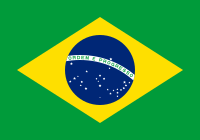
Although his theories were very influential during his lifetime and afterwards, they soon became controversial. Comte coined the term " sociology " as early as 1838 ; Research in the “sociological” field had already existed before that, only until Comte there was no binding term for it. Comte's special emphasis on the mutual interconnection of the different social elements is now considered to be an anticipation of modern functionalism . Still, with a few exceptions, his work is now viewed as eccentric, mechanistic, and scientifically outdated. The partially naive epistemology of positivism, its verificationism , was z. B. criticized by the physicist Max Planck .
Nevertheless, Comte's lasting influence should not be underestimated, especially in France and other nations with industrial and Catholic tendencies ( Poland , Brazil, etc.). Emile Durkheim's objective method of “social facts”, which differs greatly from Max Weber's methodological individualism, probably owes a lot to Comte's positivism. The natural scientist and Nobel Prize winner Marie Skłodowska Curie was also enthusiastic about aspects of positivism.
Italy's early scientific criminology was also heavily influenced by "positive philosophy," including the criminologist and physiognomist Cesare Lombroso , whom Nietzsche eagerly received. Even with Albert Camus there is still a distinction between the rather abstract, idealistic, German thinking “of the eternal youth”, which is committed to the absolute, and the “Mediterranean tradition [...] of male strength”, which is more natural and concrete experience than the philosophy of history feels obliged. Comte's Law of the Three Phases is unmistakable here, although it is actually teleological and falls into the philosophy of history. A well-known sociologist such as Pierre Bourdieu also quoted Auguste Comte several times in a specialist textbook in 1968, but not always with critical intent. The sociologist Norbert Elias praised Comte as a classic who still posed the essential question of long-term social development, even if Elias considers Comte's answers to this question to be stimulating but inadequate.
Comte's idea of sociology as the queen of all sciences was never realized. On the other hand, Comte is considered by many to be a typical representative of the unbroken and exaggerated belief in progress of the 19th century and early modernism .
In the works of the French bestselling author Michel Houellebecq , reference is made again and again to the work of Auguste Comte.
Furthermore, Comte's word coining “ positivism ” has since been used by critics to denote unquestioned belief in science and unrestrained social technology, whereby the term was sometimes used in an inflationary manner: Karl Marx already used the term “positivism” with a very general, critical intention and by no means only in relation to the original “genuine” “Positivists like Comte. The later so-called “logical positivism” also has no direct references to Auguste Comte (see positivism dispute ).
In addition to his theories, Comte has also designed various calendar systems, e.g. B. the positivist calendar .
Comte's motto “Savoir pour prévoir, prévoir pour pouvoir” (“Know in order to foresee, foresee in order to be able to act”) could still serve today as the motto of the sciences, including survey and market research ; However, one would think of Comte's pronounced determinism , his instrumentalism (the study of distant galaxies seemed irrelevant to him , since this is irrelevant to human interests and unnecessarily complicates simple natural laws ) or his idea of the rule of experts .
Comte's motto “order and progress” appears in the flag of Brazil .
Works
- Letters
- Lettres d'Auguste Comte à M Valat , professeur de mathématique, ancien recteur de l'académie de Rhodez. 1815-1844 . Dunot, Paris 1870.
- Lettres d'Auguste Comte à John Stuart Mill . 1841-1846. Leroux, Paris 1877.
- Jorge Lagarrigue (ed.): Lettres d'Auguste Comte, fondateur de la religion universelle et premier grand-prêtre de l'humanité, à Henry Edger et à M John Metcalf. Paris 1889.
- Lettres d'Auguste Comte à Henry Dix Hutton. Ponson & Weldrick, Dublin 1890.
- Lucien Lévy-Bruhl (ed.): Lettres inédites de John Stuart Mill à Auguste Comte, publiées avec les réponses de Comte. Édition Alcan, Paris 1899 (together with John Stuart Mill).
- Lettres d'Auguste Comte à divers, publiées par ses exécuteurs testamentaires. Fonds typographiques, Paris 1902/05 (3 vol.).
- Correspondance inédite d'Auguste Comte. (4 volumes, 1903–1904)
- Émile Corra (ed.): Lettres d'Auguste Comte au docteur Robinet , son médecin et l'un de ses exécuteurs testamentaires et à sa famille. Société positiviste internationale 1926.
- Fabio Germano Medeiros (Ed.): Lettres et fragments de lettres. Centro Positivista, São Paulo 1926.
- Paul Arbousse-Bastide (ed.): Lettres inédites à Célestin de Blignières. Éditions Vrin, Paris 1932.
- Paulo E. de Berrêdo-Carneiro (ed.): Nouvelles lettres inédites. Archives Positivistes, Paris 1939.
- Paulo E. de Berrêdo Carneiro, Pierre Arnaud, Paul Arbousse-Bastide, Angèle Kremer-Marietti (eds.): Correspondance générale et confessions. Paris 1973/90 (8 vol.).
- Single issues
- Appeal to the conservatives ("Appel aux conservateurs"). Lippmann Verlag, Neufeld / Leitha 1929.
- Calendrier positiviste, ou Système général de commémoration publique destiné surtout à la transition finale de la grande république occidentale composée de cinq populations avancées, française, Italienne, Germanique, Britannique et Espagnole composée. Édition Fata Morgana, Fonfroide-le-Haut 1993, ISBN 2-85194-084-8 (reprint of the Paris 1849 edition).
- Contenant toutes les théories générales de géometrie accessibles à l'analyse ordinaire . Cœury & Dalmont, Paris 1843.
- Paulo E. de Berrêdo Carneiro and Pierre Arnaud (eds.): Écrits de jeunesse. 1816-1826. Suivis du Mémoire sur la cosmogonie de Laplace . Mouton, Paris 1970 (reprint of the Paris 1835 edition).
- Catechism of positive religion (“Catéchisme positiviste, ou Sommaire exposition de la religion universelle, en onze entretiens systématiques entre une femme et un prêtre de l'humanité”). Wigand publishing house, Leipzig 1891.
- Opuscules de philosophie sociale. 1819-1828. Leroux, Paris 1883.
- Angèle Kremer-Marietti (Ed.): Plan of the scientific work necessary for a reform of society. (“Plan des travaux scientifiques nécessaires pour réorganiser la société”). Hanser, Munich 1973, ISBN 3-446-11789-X (Hanser series; 131).
- Positivism in its essence and meaning ("Discours sur l'ensemble du Positivisme"). Reissland publishing house, Leipzig 1894.
- Le Prolétariat dans la société moderne. Archives Positivistes, Paris 1946 (With an introduction by Rudolfo Paula Lopes).
- Iring Fetscher (Ed.): Speech on the spirit of positivism ("Discours sur l'esprit positif"). Meiner Verlag, Hamburg 1994, ISBN 978-3-7873-1148-4 .
- République occidentale. Ordre et progress. Matthias, Paris 1848.
- Angèle Kremer-Marietti (ed.): La Science sociale. Gallimard, Paris 1972 (Collection Idées; 261).
- Angèle Kremer-Marietti (Ed.): Sommaire appréciation de l'ensemble du passé modern. Harmattan, Paris 2001, ISBN 2-296-01621-9 (reprint of the Paris 1971 edition).
- The sociology. The positive philosophy in the extract. (“Cours de philosophie positive”). Kröner, Stuttgart 1974, ISBN 3-520-10702-4 ( Kröner's pocket edition ; 107).
- System of positive politics (“Système de politique positive”). Edition Turia & Kant, Vienna 2004 (translated by Jürgen Brankel).
- The dogmatic part of social philosophy . 2004, ISBN 3-85132-381-5 .
- Historical part of social philosophy . 2007, ISBN 978-3-85132-423-5 .
- Conclusion of social philosophy and general conclusions . 2008, ISBN 978-3-85132-495-2 .
- Traité philosophique d'astronomie populaire . Fayard, Paris 1985, ISBN 2-213-01585-6 (reprint of the Paris 1844 edition).
- Testament d'Auguste Comte, avec les documents qui s'y rapportent. Pièces justificatives, prières quotidiennes, confessions annuelles, correspondance avec Mme de Vaux . 2nd edition, Édition Pierre Laffitte, Paris 1884.
- Traité élémentaire de géométrie analytique à deux et à trois dimensions. (1843)
- Work edition
- Uvres d'Auguste Comte. (12 volumes, 1968–1971)
literature
- Essays
- Michael Bock : Auguste Comte (1798-1857) . In: Dirk Kaesler (Ed.): Classics of Sociology, Vol. 1: From Auguste Comte to Alfred Schütz . 5th edition. Beck Verlag, Munich 2006, pp. 39-57, ISBN 978-3-406-54749-2 .
- Karl-Heinz Hillmann : Sociology as the coronation of the sciences. The founder of positivism, Auguste Comte, was born 200 years ago . In: Der Tagesspiegel from January 19, 1998, p. 26.
- Angèle Kremer-Marietti: Auguste Comte et la science politique . In: Auguste Comte: Plan des travaux scientifiques nécessaires pour réorganiser la société (Commentaires philosophiques). L'Harmattan, Paris 2001, ISBN 978-2-7475-1257-2 .
- Angèle Kremer-Marietti: Auguste Comte et l'histoire générale . In: Auguste Comte: Sommaire appréciation de l'ensemble du passé modern . L'Harmattan, Paris 2006, ISBN 2-296-01621-9 , pp. 13-40.
- Realino Marra: La proprietà in Auguste Comte. Dall'ordine fisico alla circolazione morale della ricchezza . In: Sociologia del diritto , Vol. 12 (1985), Issue 2, pp. 21-53.
- Monographs
- Yvonne Bernart : The contribution of empirical positivism in the tradition of Auguste Comte to the genesis of sociology. Reconstruction of exemplary lines of development. Cuvillier Verlag, Göttingen 1995, ISBN 3-89873-935-X .
- Jürgen Brankel: Theory and Practice with Auguste Comte. On the connection between the scientific system and morality . Turia + Kant, Vienna 2008, ISBN 978-3-85132-525-6 .
- Ditmar Brock , Matthias Junge , Uwe Krähnke: Sociological theories from Auguste Comte to Talcott Parsons . Introduction . 3rd, updated edition 2012. Oldenbourg Verlag, Munich, ISBN 978-3-486-71699-3 .
- Walter Dussauze: Essai sur la religion d'après Auguste Comte (Commentaires philosophiques). L'Harmattan, Paris 2007, ISBN 978-2-296-02846-3 .
- Jean-Paul Frick: Auguste Comte, ou La République positive (Théories et pratiques sociales; Vol. 6). Presses universitaires de Nancy, Nancy 1990, ISBN 2-86480-438-7 .
- Werner Fuchs-Heinritz : Auguste Comte. Introduction to life and work (Hagen study texts on sociology; Vol. 2). Westdeutscher Verlag, Opladen 1998, ISBN 3-531-13233-4 .
- Henri Gaston Gouhier: La philosophie d'Auguste Comte. Esquisses . Vrin, Paris 1986, ISBN 2-7116-0930-8 .
- Angèle Kremer-Marietti: Le positivisme d'Auguste Comte . L'Harmattan, Pais 2006, ISBN 2-296-01620-0 .
- Angèle Kremer-Marietti: Auguste Comte et la science politique . L'Harmattan, Paris 2007, ISBN 978-2-296-03664-2 .
- Angèle Kremer-Marietti: Le kaléidoscope épistémologique d'Auguste Comte. Sentiments, images, signs . L'Harmattan, Paris 2007, ISBN 978-2-296-03663-5 .
- Wolf Lepenies : Auguste Comte. The power of characters (Edition Akzente; Vol. 505). Carl Hanser, Munich 2010, ISBN 978-3-446-23572-4 .
- Jacques Muglioni: Auguste Comte. A philosophy pour notre temps . Kimé, Paris 1995, ISBN 2-84174-007-2 .
- Johannes Peter: Auguste Comte's image of man. The philosopher and the community in positivism . Kohlhammer, Stuttgart 1936.
- Armin Schellens: Legal and state thinking in the philosophy of Auguste Comte . Bauknecht, Munich 1965 (also dissertation, University of Cologne 1965).
- Gerhard Wagner : Auguste Comte as an introduction. Hamburg: Junius 2001, ISBN 3-88506-335-2 .
- Terence R. Wright: The religion of humanity. The impact of comtean positivism on Victorian Britain . Cambridge University Press, Cambridge 1986, ISBN 0-521-30671-X .
See also
Web links
- Literature by and about Auguste Comte in the catalog of the German National Library
- Works by and about Auguste Comte in the German Digital Library
- Michel Bourdeau: Auguste Comte. In: Edward N. Zalta (Ed.): Stanford Encyclopedia of Philosophy .
- JH Bridges, The Seven New Thoughts of the Positive Polity , 1915 www.positivists.org .
Individual evidence
- ↑ Genealogy of the Comte family, gw.geneanet.org [1]
- ^ Mary Pickering: Auguste Comte: Volume 1: An Intellectual Biography. Cambridge University Press, 2006, ISBN 0-5210-2574-5 , p. 316
- ↑ In: The Sociology - Positive Philosophy , ed. by H. Blaschke, Stuttgart 1974.
| personal data | |
|---|---|
| SURNAME | Comte, Auguste |
| ALTERNATIVE NAMES | Comte, Isidore Marie Auguste François Xavier |
| BRIEF DESCRIPTION | French mathematician, philosopher and critic of religion, founder of sociology |
| DATE OF BIRTH | January 19, 1798 |
| PLACE OF BIRTH | Montpellier |
| DATE OF DEATH | September 5, 1857 |
| Place of death | Paris |
